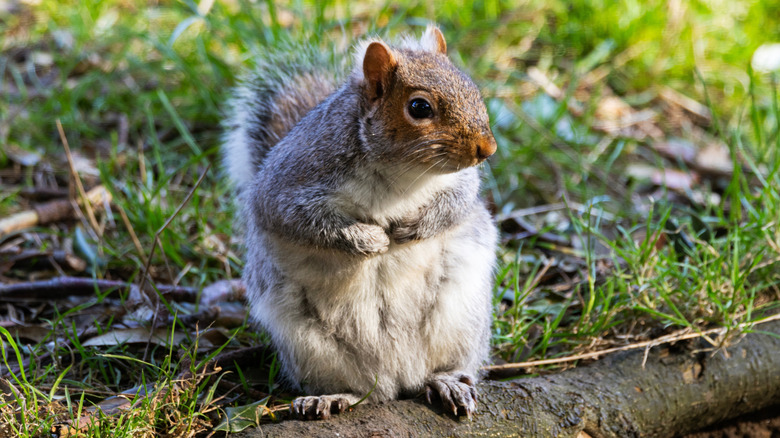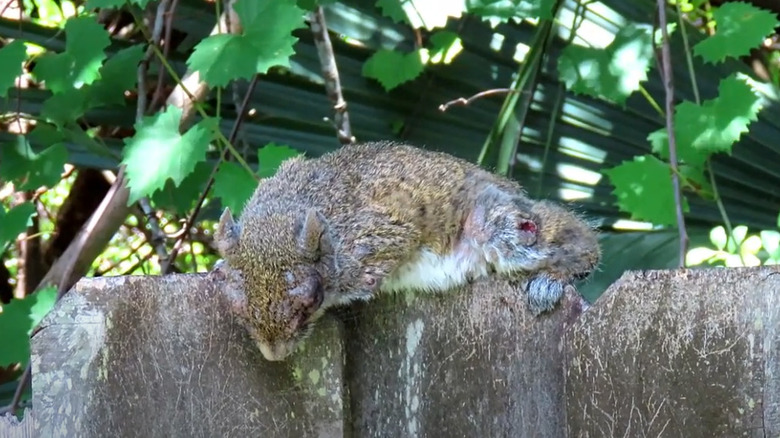What Causes 'Zombie Squirrels' & What Should You Do If You See One?
We all love spotting adorable wild animals frolicking in the wild or our own backyards. Finding a wild animal with a gruesome skin condition instead isn't as fun. However, people have been spotting squirrels across backyards from Maine to parts of eastern Canada. Dubbed as "zombie squirrels" online, these rodents have wart-like, oozing growths and bald spots on their bodies. The condition stems from a viral skin disease called fibromatosis, or squirrel pox. It's caused by the Lepripox virus and affects red, gray, and fox squirrels.
Despite the multiple sources that have been sharing news of the sightings this month, the disease has been around since the 1950s. With consideration to the symptoms, it's drawn parallels with the "tentacle bunnies" in Colorado, a similar case involving cottontail rabbits with strange growths on their bodies, caused by the Shope papillomavirus. Residents shared their accounts and photos of the rabbits earlier this month as well.
Unlike with the rabbit virus, squirrel pox can affect other species: woodchucks in the wild, and rabbits in labs, when experimentally introduced. Luckily, cats, dogs, and humans can't be affected by the disease, but that doesn't mean you should approach an infected squirrel, even if squirrels are your favorite animal.
What you should do if you see a zombie squirrel
If you come across a squirrel with these scabby, oozing lesions, don't try to be a hero and rescue it. "I would not recommend trying to capture a squirrel that has the virus," Shevenell Webb, a wildlife biologist with Maine's Department of Inland Fisheries & Wildlife, told the New York Post. "It is naturally occurring and will run its course in time." Plus, there's no effective treatment for the tumors, and in most cases, the growths regress on their own within two months. While fibromatosis can be fatal in some cases, such as if the lesions obstruct the eyes or mouth, the risk of death is generally low.
If you still feel the urge to help, there are ways you can without interacting with an infected squirrel. You can reduce the likelihood of transmission among squirrels, instead. If you have a backyard bird or squirrel feeder, either get rid of it or clean it daily, placing fresh food in it every time. Seeds contaminated with saliva or lesion fluids can be a hidden danger of a bird feeder, and inadvertently spread the virus to the next squirrel searching for a meal in your yard.
You can also reach out to a local licensed wildlife rehabilitator to report an infected squirrel. In some cases, these professionals can capture and treat squirrels if they see that the disease is affecting their eating, vision, or movement. So, leave the capture and treatment decisions up to them — unless, of course, you're a licensed wildlife rehabilitator yourself.
If you encounter an injured or sick wild animal, contact a local wildlife rehabilitator for help. To find assistance in your area, visit the Humane Society of the United States website or Animal Help Now's online directory.

